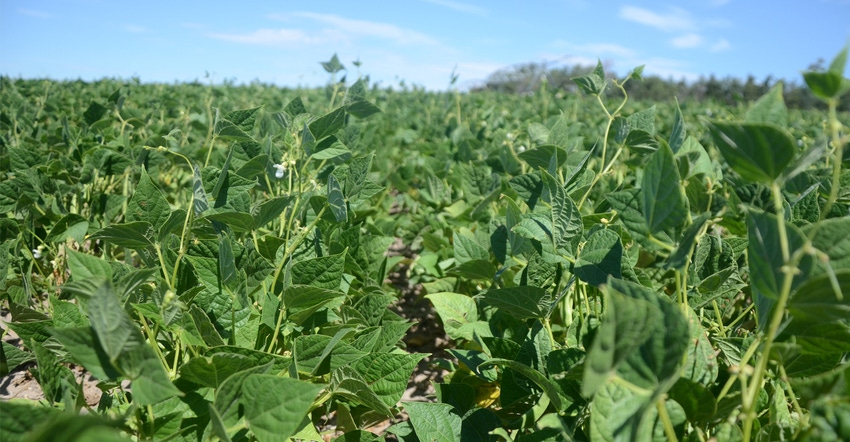October 18, 2019

From dry beans to honey, specialty crops are an important part of Nebraska agriculture. Several organizations in Nebraska recently received nearly $675,000 in grants from USDA and the Nebraska Department of Agriculture to fund projects designed to strengthen the specialty crop industry in the state.
The funding comes from USDA's Specialty Crop Block Grant Program, which provides grant monies to the departments of agriculture in all 50 states, the District of Columbia, and the five U.S. territories. NDA administers the state's SCBGP that funds research, agricultural Extension activities and marketing to increase demand for specialty crops in Nebraska.
"Specialty crops add value and variety to Nebraska's agricultural industry, which helps grow our economy," NDA Director Steve Wellman says. "The SCBGP projects receiving funding will benefit Nebraska specialty crop producers for years to come."
USDA defines specialty crops as fruits, vegetables, nuts, honey and some turf and ornamental crops. A full list of specialty crops is available on USDA's website.
The University of Nebraska–Lincoln received grants for 10 of the 13 projects that were approved for funding this year. Below is a brief description of each of the 10 projects, which will allow UNL to:
improve pea seed protein quantity and quality in western Nebraska by evaluating fertilizer management strategies
study the genetics of bacterial wilt resistance in dry beans
develop unique hop flavor profiles as hops are influenced by their growing environment
distribute hybrid hazelnuts in Nebraska and other states for testing
develop a dry bean gene-editing system to improve the productivity and availability of dry beans
provide resources to help Nebraska farmers improve yields and performance to grow broccoli, bell peppers and cucumbers
create a pest management program to more effectively control western bean cutworm
teach youth about specialty crops and expand the availability of the crops
provide information to producers about crop and water management practices to enhance productivity and increase economic return
study vineyard production in order to produce the best quality wine at the most profitable crop load
In another funded specialty crop project, Southeast Community College will increase awareness, access and use of certain Nebraska specialty crops by creating and incorporating specialty crop curriculum for students in SCC's Culinary Program.
The Nebraska Center for Rural Affairs will receive grant funding to test the effectiveness of alternative hive structures for honey production and honeybee health in another specialty crop project.
In the last specialty crop project approved for funding this year, the Papio Valley Nursery will use its greenhouses to create year-round production of fresh strawberries.
All of the projects receiving SCBGP funding this year must be completed by Sept. 29, 2022. For information about this year's grant awards, visit USDA's website and click on "FY 2019 (pdf)." NDA uses a portion of the USDA-awarded funding to monitor and administer Nebraska's SCBGP.
NDA administered a two-phase competitive grant application process for these SCBGP funds. Phase one involved the submission of concept proposals, which allowed applicants to explain the main points of their project. The concept proposals were independently and competitively scored by a field review panel.
Projects with the highest combined scores were asked to complete phase two of the application process and include a more in-depth description of the project.
Source: Nebraska Department of Agriculture, which is solely responsible for the information provided and is wholly owned by the source. Informa Business Media and all its subsidiaries are not responsible for any of the content contained in this information asset.
You May Also Like




